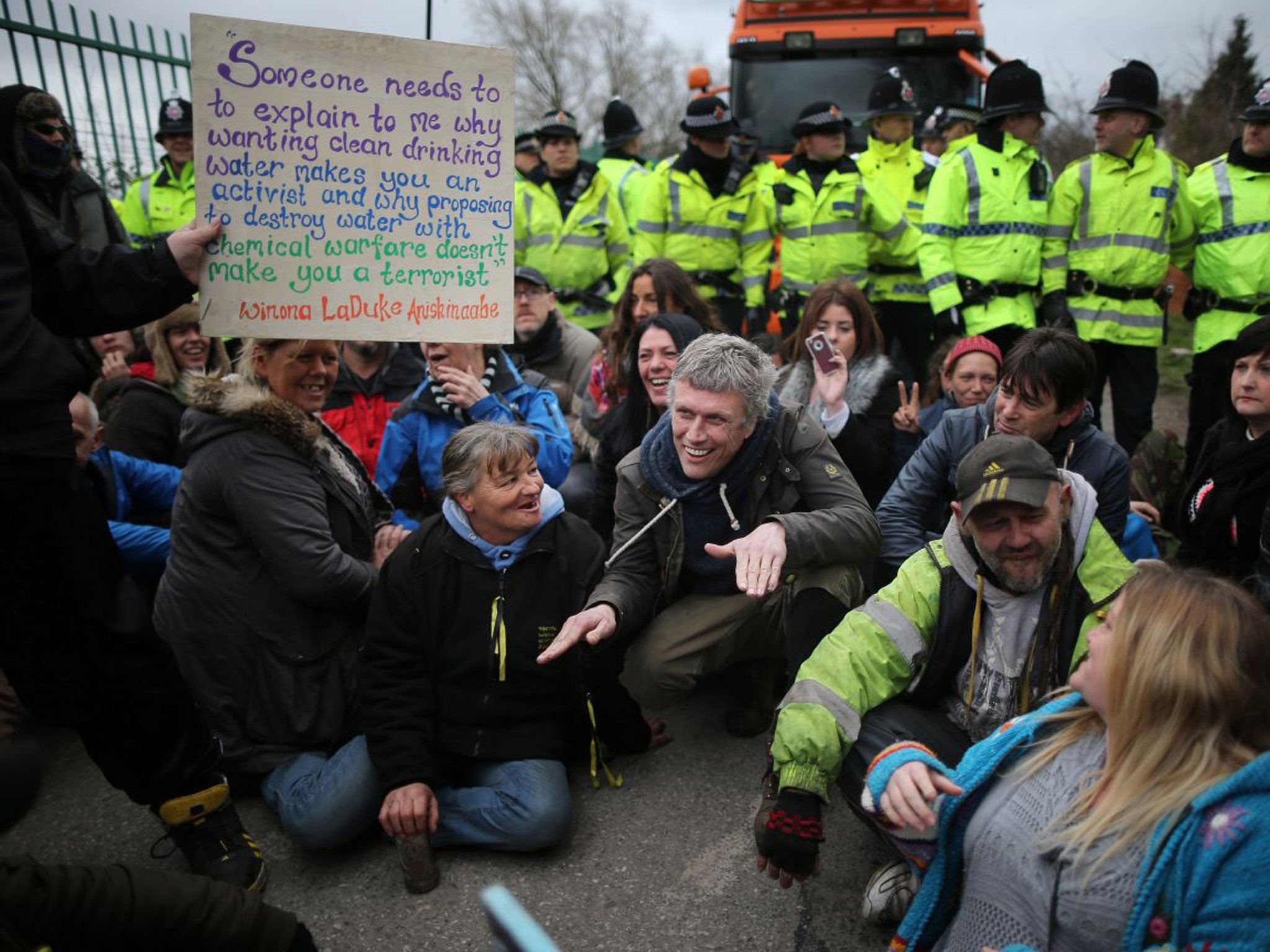Fracking industry launches charm offensive as it looks for the last piece of the puzzle - public opinion

The Government and fracking companies have launched a joint charm offensive in a bid to win “a social licence” to operate from a general public that is widely opposed to shale gas development.
Duarte Figueira, who is heading up the Government’s drive into the fledgling industry, told a shale gas conference that much of the preparatory work for widespread production is well underway but said the public remained “the last piece of the puzzle”.
“It’s absolutely natural that people are nervous…They’ve heard horror stories from the States,” said Mr Figueira, head of the Government’s Office for Unconventional Oil and Gas, adding that fracking would be done safely in the UK where regulations are strict.
He was referring to numerous reports of water contamination and other pollution in the US that have been blamed on the highly controversial practice of fracking, which releases gas and oil from shale by blasting a mixture of sand, chemicals and water into the rock. Fracking is widespread in the US but is only just starting in the UK, where no permits have been issued yet and significant commercial production is not expected for several more years.
“The important thing the government can do is to inform the public of the reality of the situation [and] it is key that the industry engages communities at an early stage… ahead of any planning application,” said Mr Figueira, who is based in the Department for Energy and Climate Change. Furthermore, it has the potential to bring down carbon emissions because its can be used in place of dirtier coal, he said.
But opposition to fracking is strong, with two potential sites – in the West Sussex village of Balcombe, and Barton Moss in Greater Manchester – both attracting hundreds of protesters in recent months as their operators drilled conventional test wells to assess the sites’ suitability for development.
Meanwhile, The Shale Gas Forum where Mr Figueira was speaking was switched to a secret location – the Honourable Artillery Company in Moorgate - at the last minute after concerns about a protest planned for outside the original location in Knightsbridge. That protest went ahead at the initial venue, as fashion designer Vivienne Westwood joined hundreds of anti-fracking campaigners marching through London.
“It is clear that we are not being told the whole truth about fracking in the UK when we are told that it is safe. In fact, there are several potential threats to our countryside, our water and our health. We are running head long towards climate change and more fossil fuels is not a solution,” said Ms Westwood.
Inside the conference Cuadrilla, the company backed by former BP chief executive Lord Brown with the Balcombe license, and iGas, the operator behind the Barton Moss development, backed Mr Figueira’s call to win over the public.
iGas chief executive Andrew Austin said: “We still have to earn our social license to operate. That’s about how operators communicate, about how we engage with communities around us and making sure we do that sensitively.”
“And sometimes that can be very frustrating because of the time it takes to talk to people to make sure that everybody’s involved – but it’s absolutely essential. We have to talk to people, that is our responsibility, we have to engage and that is what ensures our social licence to operate,” Mr Austin added.
Cuadrilla chief executive Francis Egan said at the conference that the potential for shale gas in the UK was huge. “If we are to unearth that potential we need to build and understanding in what we’re doing and trust in how we’re doing it,” he said, guaranteeing that he would undertake the “most comprehensive [environmental impact] assessment ever completed for a shale gas well” as part of the company’s planning application later this year for two proposed fracking sites in Lancashire.
The government is pursuing shale gas hard, offering tax breaks to developers and financial incentives to communities living near any fracking site. It argues that a booming shale gas industry would reduce our reliance on – often unstable – foreign regimes such as Russia, provide jobs and tax revenues and reduce emissions. Opponents of fracking argue that the environmental threats posed by fracking remain unclear and that it is still far early to say that it will be commercially viable to produce any shale gas at all in the UK. They also argue that shale gas production could increase carbon emissions, replacing renewable energy generation rather than coal plants.
Subscribe to Independent Premium to bookmark this article
Want to bookmark your favourite articles and stories to read or reference later? Start your Independent Premium subscription today.

Join our commenting forum
Join thought-provoking conversations, follow other Independent readers and see their replies